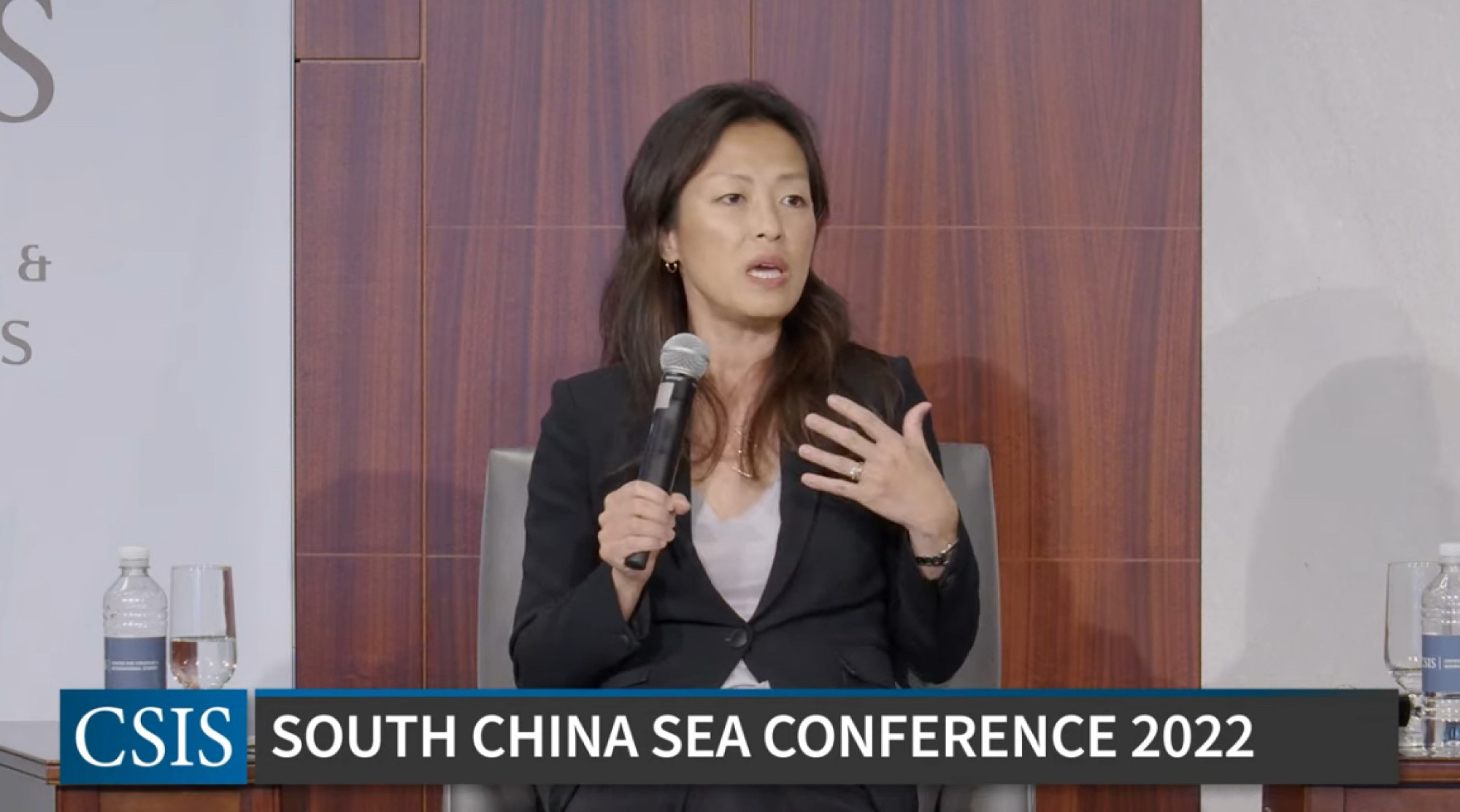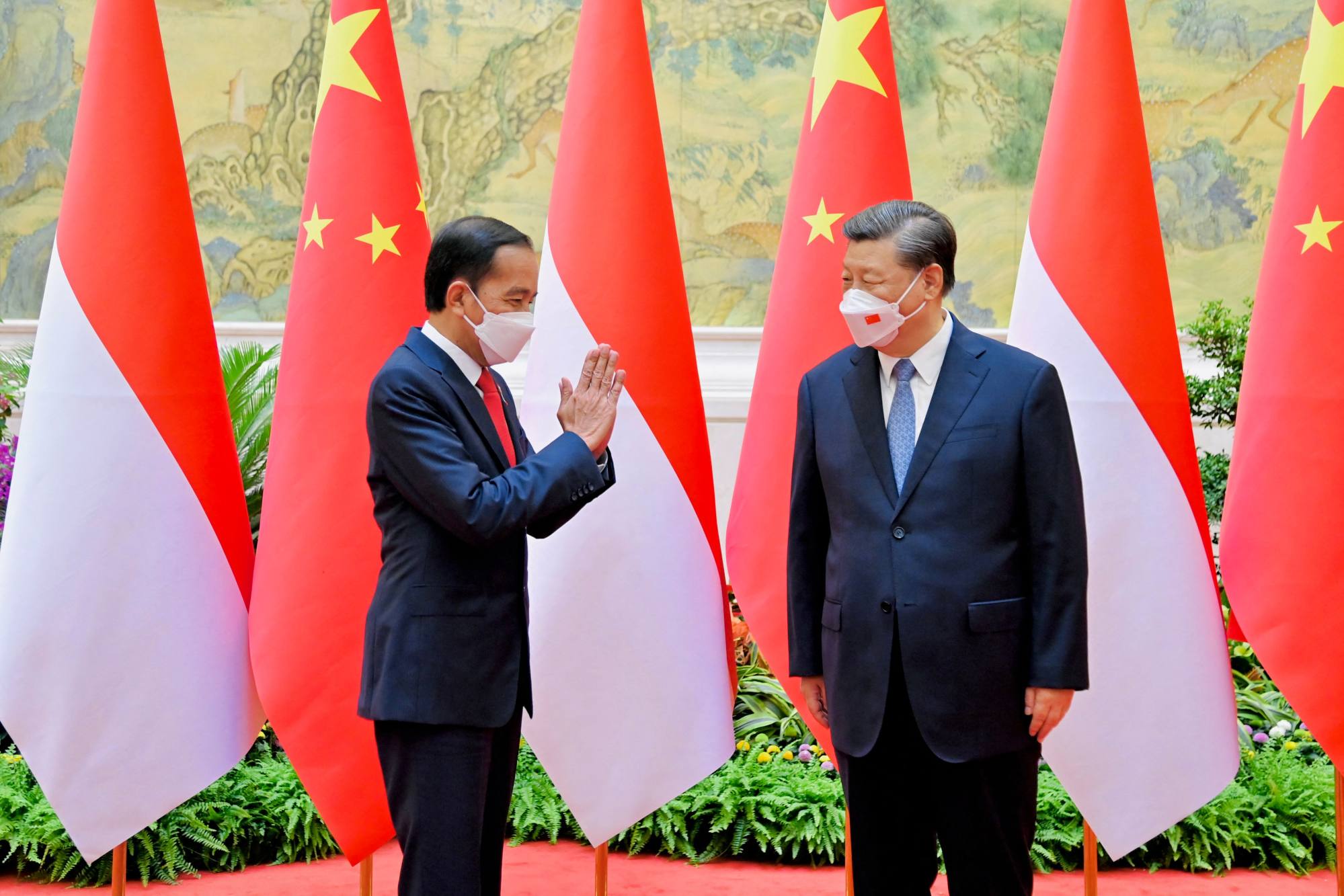
US officials call China’s actions in the South China Sea unsafe and increasing
- Unlawful maritime provocations by Beijing are ‘growing by orders of magnitude’, says assistant defence secretary for Indo-Pacific security affairs
- Analysts from Vietnam, Indonesia and the Philippines at forum state concerns about China’s efforts in region and welcome more of a US response
“There is a clear and upwards trend of [People’s Republic of China] provocations against South China Sea claimants and other states lawfully operating in the region,” Jung Pak of the department’s bureau of East Asia and Pacific affairs, said in a forum hosted by Washington think tank Centre for Strategic and International Studies.
Ely Ratner, assistant secretary of defence for Indo-Pacific security affairs, said in the event’s keynote address that the Pentagon was working to declassify its record of occurrences so the public could judge.

Asked about the remarks by Pak and Ratner, Chinese embassy spokesman Liu Pengyu said China and Asean members were “working actively to advance the consultations on a code of conduct in the South China Sea”.
“The US, as a non-regional country, has been ignoring the history and facts of the South China Sea issue and violated and distorted international law,” Liu said.
“It has broken its public commitment of taking no position on sovereignty claims in the South China Sea, and sought to drive a wedge between regional countries and undermine peace and stability in the region,” he added.
Nguyen Thi Lan Anh, director general of the East Sea Institute at the Diplomatic Academy of Vietnam, which is affiliated with the country’s foreign ministry, said she hoped the US State Department would continue with a series of official “Limits in the Seas” reports, which examine the validity of maritime claims around the world.
South China Sea not a ‘fighting arena’ for great powers: Wang Yi
“We do hope that after 150, we will have other analysis to continue with these objective contributions,” Nguyen said.
Beijing ‘needs at least 6 aircraft carriers to watch over South China Sea’
“It’s kind of striking because you have a high-level talk between presidents, but nobody’s talking about the South China Sea, and part of the main reason is the fact that Indonesia simply does not want to talk about it,” he said.

Ratner said the Pentagon had trailed think tanks in releasing commercial satellite imagery and other tools to help smaller nations monitor Chinese incursions in their neighbourhood.
Chinese experts warn against US-led strategy targeting Beijing in South China Sea
“They may have a coastguard vessel or even an aerial surveillance plane,” Ratner said of smaller nations in the region, particularly in the South China Sea. “But they would have to patrol like a police car patrols a neighbourhood around looking for trouble, rather than getting very direct information that says there is an illegal fishing vessel or an illegal coastguard vessel in your water at this exact location.”
To keep up with China, Pentagon must cut red tape and embrace tech: official
“I see that as my job day in and day out,” he said, given the “pacing challenge” that China represents. “This question of aligning resources to prioritisation is one that we just have to keep asking, keep asking, keep asking.”
“We’re turning the ship but, as it relates to the question, clearly have more work to do.”
Other US policies also came under some criticism at the CSIS event. Some analysts called on Washington to adopt a more consistent approach to its relations with countries in the region and pressed Washington to ratify UNCLOS.
China is getting ‘more coercive’ in its territorial claims: US defence chief
Several US administrations, including Biden’s, have supported ratification, but the move requires approval by Congress, which has been reluctant to do so.
Indonesia works with China “for economic gains, but we maintain relationships with the US for the security”, Sulaiman said.
“We’re also worried about the United States, because the feeling is that if we get too close … that basically the United States will also dominate the region. And that’s bad news for us, in part because of the long history” of US policy in Indonesia, he added.
However, none of the panellists suggested that Washington should back down.
The ruling is “only binding directly in the Philippines and China, however, it is also a source of international law … and also a source of interpretation of UNCLOS under the Vienna Convention.
“The means [of enforcement] is really our alliances and partnerships,” Silva said.


